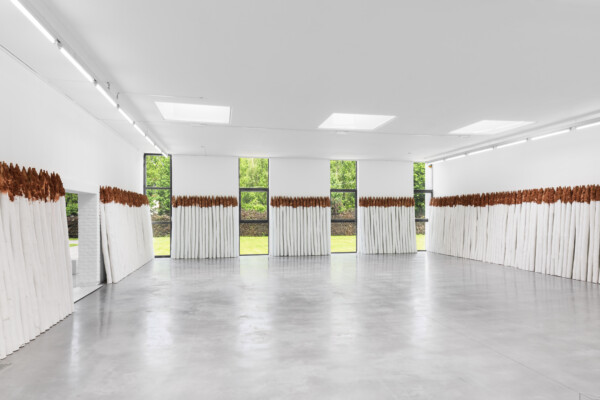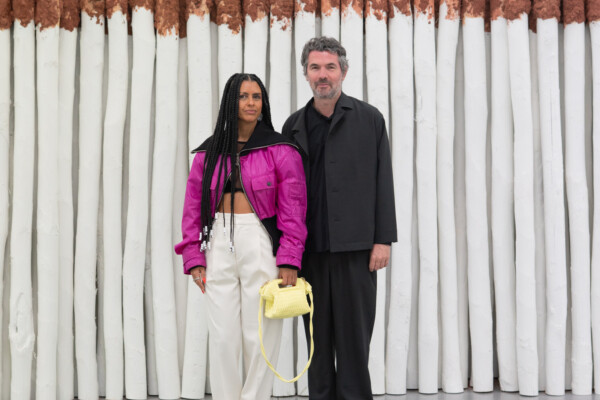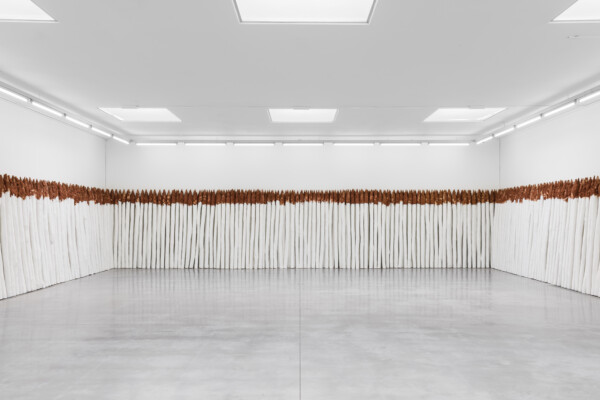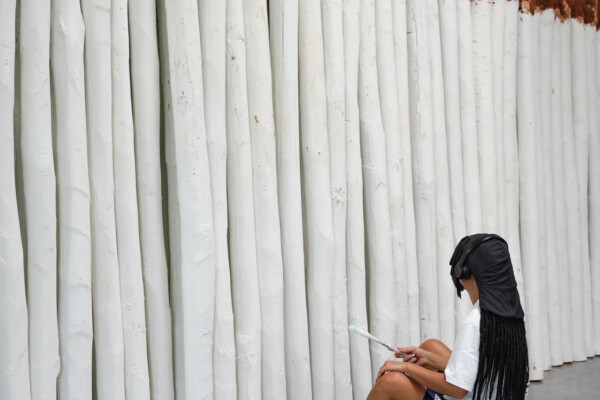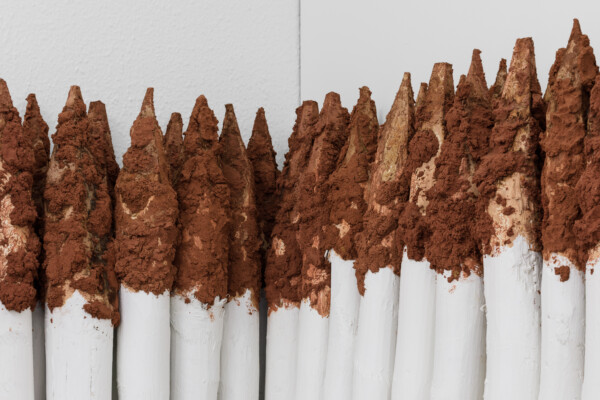Cinthia Marcelle
Fence Mirage (MDD version)
The Brazilian artist Cinthia Marcelle (1974, Belo Horizonte) is known for her powerful installations that challenge social structures. Her work often starts from the tensions between city and nature, wealth and poverty, inside and outside. She uses minimal interventions and simple, locally available materials. Her installations are closely connected to the locations in which they are shown, and she often revisits her own earlier works—reinterpreting and evolving them into new forms.
In Fence Mirage – MDD Version, Cinthia Marcelle invites us to reflect on the meaning of borders—both literal and symbolic. At first glance, the installation appears simple, but it raises pressing questions: were the elements recently removed from a border? Will they be put back somewhere, and if so, where and by whom? Do they now mark a free zone? The work makes tangible how boundaries between inside and outside spaces blur, and it challenges us to consider who belongs where—and who doesn’t. Marcelle connects local materials and contexts to broader societal themes such as ownership, power, access, and exclusion.
Fence Mirage – MDD Version continues an earlier work (Fence Mirage, 2005), and reflects her evolution as an artist—from modest gestures to large-scale interventions. Yet her approach remains consistent: through minimal means, she poses complex questions that resonate both locally and globally. Her work is rooted in the realities of Latin America but aligns closely with contemporary debates—also here in Belgium, where land is increasingly treated as a status symbol. Fence Mirage invites us to reconsider how we use, divide, and share space.
Cinthia Marcelle (b. 1974) lives and works in São Paulo, Brazil. She has had major solo exhibitions at Marta Herford Museum für Kunst (2023), MACBA (2022), and MASP (2022); as well as at the Wattis Institute (2018), Modern Art Oxford (2017), MoMA PS1 (2016), and Secession (2014). She participated in the 15th Gwangju Biennale (2024), 10th Berlin Biennale (2018), 12th Sharjah Biennial (2015), New Museum Triennial (2012), 13th Istanbul Biennial (2013), 29th São Paulo Biennale (2010), 9th Lyon Biennale (2007), and 9th Havana Biennale (2006). In 2017, she represented Brazil at the 57th Venice Biennale with the installation Chão de Caça and the video Nau/Now, co-created with Tiago Mata Machado, which received an honorable mention. Among other accolades, she received the Future Generation Art Prize (2010), the International Prize for Performance (2006), and the Bolsa Pampulha (2003).
